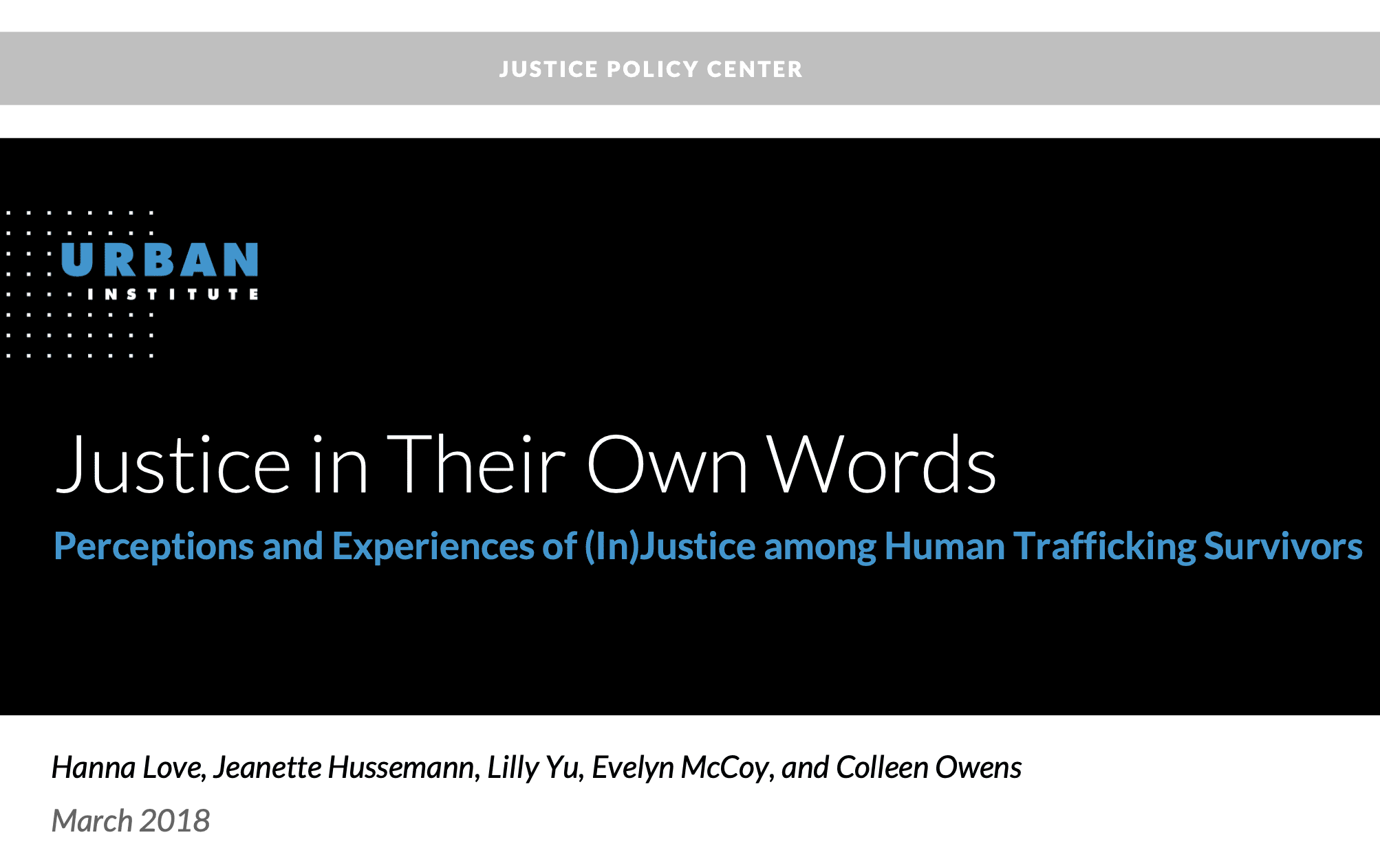
Justice in Their Own Words: Perceptions and Experiences of (In)justice among Human Trafficking Survivors
Survivors of interpersonal violence face many challenges when interacting with the criminal justice system, including the fear of being disbelieved, concerns about safety and retaliation, and a distrust in the system’s ability to adequately respond to their cases. Although past studies have documented the challenges survivors of sexual and intimate partner violence face when interacting with the justice system, few have focused on survivors of human trafficking—a population that often experiences misconceptions regarding their victimization, stigma due to perceived involvement with illegal behavior, xenophobia, and criminalization. Without survivors’ perspectives, little is known about how criminal justice actors can address these challenges and improve their interactions with human trafficking survivors.
The Bending Towards Justice: Perceptions of Justice among Human Trafficking Survivors study is the first to ask survivors of human trafficking how they perceive their interactions with the justice system and how they define justice in their own terms. Drawing from qualitative interviews with 80 survivors of sex and labor trafficking and 100 human trafficking stakeholders in eight diverse metropolitan locations across the country, this brief documents survivors’ difficulties achieving justice through traditional criminal justice means and provides their recommendations for how justice system responses to trafficking can be improved. It reveals that most survivors do not endorse traditional forms of retributive justice, such as incarceration, and instead prefer preventative remedies outside the formal criminal justice system.
Read more here.
